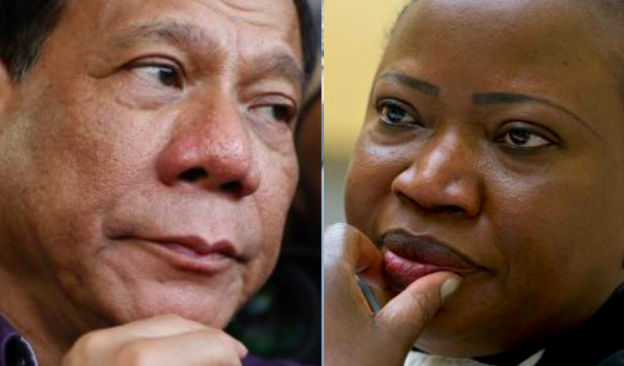
President Duterte has threatened to arrest the International Criminal Court’s prosecutor if she visits the Philippines to probe his war on drugs.
Last month, the president revoked the country’s membership of the court, saying the treaty that established the court’s jurisdiction in 2011 had not been properly published in a government or commercial publication.
Speaking at a press briefing in Davao City today (Friday, April 13), he said: “So you, Ms Fatou [ICC prosecutor Fatou Bensouda], ‘do not come here, because I will bar you. Not because I am afraid of you, I said, because you will never have jurisdiction over my person, not in a million years.
“But what is your authority now? If we are not members of the treaty, why are you f**king in this country? You cannot exercise any proceedings here without basis. That is illegal and I will arrest you.”
The president added that he was not afraid of an investigation but “you can never call me to the ICC simply because your position is flawed”.
“It cannot be corrected anymore. So stop your nonsense,” he said.
In withdrawing the Philippines’ membership in the tribunal, Duterte cited “baseless, unprecedented and outrageous attacks” against him and his administration.
Duterte declared the exit from the tribunal about a month after the court’s Office of the Prosecutor announced it would begin a preliminary examination into alleged extrajudicial killings associated with war on drugs. The complaint was filed at the court last year by lawyer Jude Sabio.
According to Article 127 of the Rome statute, which instituted the court in the Philippines, withdrawal takes place one year after notification, and any pending cases can continue during this time.
By withdrawing from the jurisdiction of the court, the president is following in the footsteps of Russia’s President Vladimir Putin and also The Gambia, which cited racism against “people of colour, especially Africans” as a reason for leaving. South Africa also withdrew in 2016 following criticism that it hosted Sudanese President Omar al-Bashir at an African Union summit, despite him facing an ICC arrest warrant over alleged war crimes.
